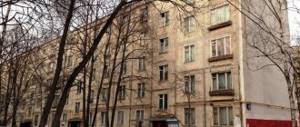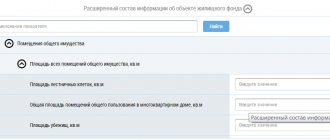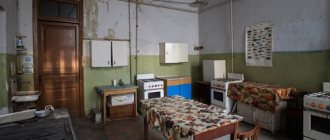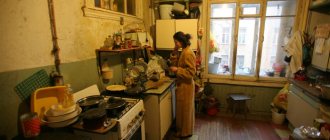What kind of property is communal?
The purpose of communal apartments in the Soviet period was housing for workers.
Densification began to take effect after the abolition of private property. Today, communal apartments are a problem in Moscow and St. Petersburg; there are fewer of them in regional centers. The characteristics of such an apartment are given in the bill “Fundamentals of Moscow Housing Policy”:
- several premises for long-term living;
- one apartment is intended for several tenants or owners;
- kitchen, bathroom - shared;
- ownership is not shared, but room by room;
- Each property owner has a personal account for payment for housing and communal services.
Several families living in the same premises often have conflicts due to the use of a common kitchen or lack of privacy. For this reason, resettlement from communal apartments in 2021 is carried out on the basis of a renovation program.
Rules for cohabitation in communal apartments
Disposal of housing
Residents of communal apartments, renting and owning premises, have different rights.
The owner can:
- register any other person in the living space;
- give or change your share;
- rent out your part of the premises.
Tenants can only sublet their room to others.
Noise at inappropriate times
One of the main reasons for quarrels between residents of communal apartments is noise.
Loud music, TV, noisy parties often worsen relations between neighbors. But claims by one of the parties can only be brought if the failure to maintain silence occurs at the wrong time.
This is important: from 7 a.m. to 11 p.m. at night, you can do any business in the apartment, and after 11 p.m., turn down the volume and not disturb your roommates’ rest.
Common areas
In communal apartments there are places that are not personal for an individual family: the kitchen, corridor and bathroom are not subject to division.
The easiest way to regulate their use is to create a schedule. And divide the gas stove into burners and give each one to one family.
Please note: if some residents interfere with the use of common areas, then this is a direct violation of the law and the rights of residence of neighbors.
When and how to receive guests
No legislation stipulates under what hours and conditions residents of communal apartments can receive guests in their apartment.
However, if friends of the legal tenants arrived at the apartment, then they have the right to freely use the bathroom and kitchen. Other owners have no right to interfere with this.
It is worth agreeing in advance with all residents about the time at which it is permissible to invite strangers into the apartment in order to avoid problems in the future.
Illegal occupants
Another problem of living in communal apartments is illegal tenants.
Often, one family can accommodate one more person in their room without registering him first. The Housing Code of the Russian Federation prohibits such actions, therefore, after 23:00, neighbors have the right to calmly call law enforcement agencies and demand eviction.
Smoking and damage
An important aspect of living together in a communal apartment is the issue of smoking has been resolved.
When people smoke in an apartment, others begin to resent the fact that the entire living area is permeated with the smell of tobacco. At the same time, damage to common property may be caused, which will entail a long trial. It is almost impossible to ban smoking indoors, although the anti-tobacco law has been in effect for many years.
There are several ways out of this situation:
- agree with the smoker that he will go out into the entrance or onto the street;
- call the police and sue him.
Pets
Pets are not a problem in a private home or your own apartment.
All troubles affect only the residents themselves and no one else. But in the case of communal living space, the situation is completely different.
It is possible to keep a dog, cat, or even the smallest hamster in a communal apartment only under one condition: all residents agree to put up with the noise and smell of the dog, cat, etc.
Otherwise, it is strictly prohibited for animals to live in the apartment.
Payment for services
Living together in one apartment of several families is one problem.
But the more pressing issue is paying utility bills. According to the law, services such as:
- heating;
- telephony;
- Electric Energy;
- gas
paid according to agreement. If there is no agreement between residents, then the amount in the receipt is divided between neighbors according to consumption.
Repair
The issue of repairs is important when living in such an apartment.
The decision on the need to carry it out is determined either by the residents themselves or by the organization debugging the residential premises. When carrying out renovations in an apartment, a cost estimate is drawn up. Each owner pays a portion of the amount commensurate with their share of ownership.
If disputes arise between residents regarding behavior and other aspects that cannot be resolved in court, then all responsibility rests with the house committee.
From this video you will learn all the details about the rights of owners of a communal apartment:
Law
The general principles and features of resettlement are not regulated by law. But when performing the procedure, the following are taken into account:
- Art. The Housing Code of the Russian Federation, which considers issues of family members of the owner of a residential premises, their rights and degree of responsibility. Clause 4 states that the termination of family relationships is the basis for the termination of the right to use housing;
- Art. 288 of the Civil Code of the Russian Federation - only the owner has the right to use and dispose of real estate. Clause 2 establishes the possibility of renting out an apartment in a communal apartment under a rental agreement;
- Art. 290 of the Civil Code of the Russian Federation - owners have a general property right to communications, equipment outside communal apartments, but on the territory of a multi-storey building;
- Art. 291 of the Civil Code of the Russian Federation - the possibility of creating a non-profit partnership of owners. It resolves issues of management, safety, and use of common property.
The procedure and specifics of resettlement are established by regional authorities. For example, in Moscow they create resettlement schedules, an address list of resettlement objects, a list of developers and other organizations serving programs in the region.
Article 31 of the Housing Code of the Russian Federation “Rights and obligations of citizens living together with the owner in residential premises belonging to him”
Article 288 of the Civil Code of the Russian Federation “Ownership of residential premises”
Article 290 of the Civil Code of the Russian Federation “Common property of apartment owners in an apartment building”
Article 291 of the Civil Code of the Russian Federation “Homeowners’ Association”
Legislative regulation
There is no separate law that describes the features of the resettlement of communal apartments, so different norms and acts are used for this:
- Art. 31 residential complexes;
- Art. 288-291 Civil Code;
- PP of different regions.
Now it is taken into account that even if some residents do not agree with the resettlement, this process can still be carried out if the house is demolished, there is a court decision, or if parents are deprived of their rights in relation to their children.
Types of housing
When implementing the program, citizens may be offered different options:
- provision of similar housing;
- purchasing the remaining rooms in the apartment at discounted prices;
- transfer of an apartment in a new building, and usually houses that are only 70 percent completed are used for this;
- provision of a separate apartment for the family.
The decision is made by regional authorities, which takes into account the number of people in the queue and the life characteristics of a particular applicant.
Difficulties of resettlement
Many people who qualify for the program still have to face many difficulties, which include:
- lack of money, since the compensation received may not be enough to purchase even a small one-room apartment or sign a written agreement;
- refusal of neighbors in communal apartments to move in, for which citizens must wait a long time for their turn.
Important! In the latter case, the issue can be resolved through court.
How does the program work?
The Renovation program provides for the procedure for resettling people from communal apartments until 2021. Based on Government Resolution No. 1743-the procedure for its implementation is established by regional authorities.
The goal of the program is to eliminate communal apartments throughout the country. Participants are citizen owners or tenants of communal-type residential premises. They must be registered as persons in need of improved living conditions.
The program for relocating communal apartments defines several types of state support:
- social payments from the city budget;
- redistribution of footage of communal facilities and apartments from the city fund;
- sale on the basis of a contract of a vacated residential premises or room.
Important! As part of the project, citizens can receive a separate apartment on the secondary or primary market, or the premises of neighbors, subject to the transfer of communal housing to an apartment.
Resettlement from communal apartments
Order of the Government of the Russian Federation of September 26, 2013 N 1743-r “On a set of measures aimed at solving problems related to the liquidation of emergency housing stock for the period until 2017”
Read also: Consumer extremism
Housing Consultant
- It is necessary to collect the entire list of documents and register as a citizen in need of housing.
- If the housing is in the register of apartments eligible for resettlement, the applicant can choose one of the options: subsidizing the purchase of a new apartment, buying out the shares of the remaining residents, or receiving residential premises on a first-come, first-served basis. The choice of option will depend on whether the person is the owner of the apartment or a tenant, whether his neighbors agree to resettlement, and what condition the apartment is in (dilapidated housing or not).
- If the choice falls on the acquisition of the remaining shares, then the state offers financial assistance for the acquisition of these premises. In the case where there are already free rooms, you can buy them from the state using a reduced coefficient (which will be determined depending on how many years the citizen has been in line for resettlement).
- The amount of the subsidy for the resettlement of communal apartments is determined based on the cost of the remaining shares of the residential premises.
- Next, an application for resettlement assistance is submitted. The agreement determines the amount of material payment and specifies the timing of the transfer of funds. You can view the document here: [Application for provision of social benefits under the resettlement program].
- After completing the documentation, the applicant either receives a new living space or remains in the old one and registers it completely as his own.
Reasons for resettlement
Persons living in unsuitable premises with worn-out communications and load-bearing structures have the right to resettle from communal apartments in 2021. Relocation is carried out on the basis of:
- dilapidation or deterioration of housing by 65-70%. Average wear per year should be from 2 to 5%. This point is established by a commission consisting of representatives of the Ministry of Construction, the city administration and housing and communal services;
What kind of housing is considered dilapidated? - emergency condition of real estate that poses a threat to humans. The status is assigned after drawing up an act of destruction of load-bearing structures, roof, facade, communications. The commission recognizes the fact of the emergency condition and indicates the possibility of its reconstruction;
- special program of the region. A number of laws regulating the issues of resettlement of citizens have been adopted in Moscow and St. Petersburg. According to Art. Residential complexes can be changed from one type of housing to another (communal apartments to private houses) within the locality.
On a note! Regional law allows relocation at the request of the owner. Neighbors' consent is not required.
Program for relocation from dilapidated and emergency housing
Article 86 of the Housing Code of the Russian Federation “Procedure for the provision of residential premises under a social tenancy agreement in connection with the demolition of a house”
Subjects of the program
The following have the right to receive separate housing after resettlement:
- residents of communal apartments who received premises for social rent (tenant and his family);
- owners of rooms in communal apartments and their family members registered at this address.
The list also includes persons living in communal apartments that meet the standards. Beneficiaries include:
- heroes of Labor (recipients of the order of any degree) - can receive 15 sq. m.;
- employees of the judiciary - judges of federal and constitutional services - are allocated 20 square meters;
- heroes of the Russian Federation and the USSR - receive 20 square meters;
- representatives of the prosecutor's office - receive 20 sq.m.;
- employees of the Ministry of Internal Affairs with the rank of colonel - additional room;
- Armed Forces employees with the rank of colonel and above - footage (15-25 sq. m.) depends on length of service.
On a note! The specific area of housing for employees of the Ministry of Internal Affairs is not established.
Without the neighbors' consent
The neighbors' consent was necessary until 2015, but not everyone could agree. Currently, in order to be resettled, a citizen must only submit an application. Placing on a queue does not require approval from neighbors.
On a note! Owners of communal apartments in the Leningrad region can only move by agreement with their neighbors.
Status of those in need of improved housing conditions
The basis for obtaining real estate due to poor conditions will be:
- non-compliance of the residential property with area standards - the relocation procedure applies to persons registered in the apartment. Standards are set at the regional level. In Moscow it is 18 sq.m. for one person;
- emergency condition - the emergency category includes stone buildings that are 70% worn out and wooden houses that are 65% unusable;
How to recognize a house as unsafe - deviations from SES standards - for resettlement it is necessary to prove an unacceptable limit of vibration or noise;
- disease - the list of ailments is indicated in Resolution No. 378;
- lack of family ties among residents - on the basis of Art. LCD people who are not relatives or former relatives cannot live in the same apartment.
Important! To obtain the status of a person in need, you need to submit documents to the social security service or the municipality.
Decree of the Government of the Russian Federation of June 16, 2006 N 378 “On approval of the list of severe forms of chronic diseases in which it is impossible for citizens to live together in the same apartment”
Application for social benefits under the resettlement program
Owned
Resettlement on a first-come, first-served basis from the owners' rooms in communal apartments is carried out after the citizen is recognized as needy. The priority does not apply to tenants of expropriated real estate, emergency buildings, illnesses that make it impossible to live next to a person (schizophrenia or the last stage of tuberculosis), social workers.
Under a social tenancy agreement
Persons who have received communal apartments under a social tenancy agreement are accommodated in the order of priority, if the area per person is less than the standard one. A house in disrepair can be relocated by decision of the commission. Similar rules are established in case of violation of SES norms.
On a note! Tenants must receive a communal apartment from the owner, not a room.
Payment of compensation
Instead of housing during resettlement, the state may offer citizens compensation in the form of a certain amount of money.
This is offered to citizens who, in addition to a room in a communal apartment, have other housing.
Important! An amount equal to the market value of a room or several rooms in an apartment is offered.
Also, if one of the residents agrees to buy other rooms in the apartment, then he is offered preferential conditions for this. Additionally, subsidies are provided that allow you to pay off most of the mortgage loan.
Accommodation options
The issue of resettlement from communal apartments is resolved on the basis of the purchase of rooms by one person, receipt of social benefits or housing for those in need, and exchange of premises.
Read also: Law on Trade Unions
The resettlement option depends on the form of ownership of the residential premises:
- The apartment was received from state funds. City authorities maintain the square and improve conditions. That is, if a person had a wooden building, he has the right to housing in a panel or brick house.
- The state apartment meets the requirements for improvement, but does not meet the square footage per person. An improved layout of living space is provided.
- A citizen has ownership rights to real estate that is not included in the resettlement list. A payment is provided in accordance with the cost of housing on the market, after which the person submits a written application to the administration. He has the right to premises in a house on 5 or 9 floors. The amount received upon eviction will be part of the price of the new residential property.
On a note! After resettlement, the family must have housing with an equivalent area, location, degree of improvement and status.
List of required documents
To become a participant in the program, you will need to provide:
- internal passports of citizens of the Russian Federation or other documents confirming identity;
- papers on family ties or lack thereof (marriage, divorce, birth certificates);
- application for relocation;
- certificates confirming that the family is on a waiting list for housing this year;
- documents in form No. 9 - about the place of registration;
Help on Form 9 - characteristics of residential real estate according to form No. 7;
Certificate form No. 7
Sample of completed certificate according to form No. 7 - documents establishing ownership of the apartment/room.
The application is filled out in any form and submitted at the place of application along with notarized copies of papers.
How communal apartments are resettled with the help of the court
Judicial procedure is used under Art. 3 of the Code of Civil Procedure in case the rights of residents of communal apartments are violated. Usually the statement of claim specifies the requirements specified in Art. 131 and 132 Code of Civil Procedure.
Article 3. Right to go to court
1. An interested person has the right, in the manner established by the legislation on civil proceedings, to apply to the court for the protection of violated or disputed rights, freedoms or legitimate interests.
1.1. A statement of claim, statement, complaint, presentation and other documents can be filed with the court on paper or in electronic form, including in the form of an electronic document signed with an electronic signature in the manner established by the legislation of the Russian Federation, by filling out a form posted on the official court website on the Internet information and telecommunications network.
2. Waiver of the right to go to court is invalid.
3. By agreement of the parties, a dispute within the jurisdiction of the court, arising from civil legal relations, before the adoption by the court of first instance of a judicial decision that ends the consideration of the civil case on the merits, may be referred by the parties to the arbitration court, unless otherwise provided by this Code and federal law .
Article 131. Form and content of the statement of claim
1. The statement of claim is submitted to the court in writing.2. The statement of claim must indicate:
1) the name of the court to which the application is submitted;
2) the name of the plaintiff, his place of residence or, if the plaintiff is an organization, its location, as well as the name of the representative and his address, if the application is submitted by a representative;
3) the name of the defendant, his place of residence or, if the defendant is an organization, its location;
4) what is the violation or threat of violation of the rights, freedoms or legitimate interests of the plaintiff and his demands;
5) the circumstances on which the plaintiff bases his claims and evidence confirming these circumstances;
6) the price of the claim, if it is subject to assessment, as well as the calculation of the collected or disputed amounts of money;
7) information about compliance with the pre-trial procedure for contacting the defendant, if this is established by federal law or provided for by the agreement of the parties;
list of documents attached to the application.
The application may indicate telephone numbers, fax numbers, email addresses of the plaintiff, his representative, the defendant, other information relevant to the consideration and resolution of the case, as well as the plaintiff’s requests.
3. The statement of claim brought by the prosecutor in defense of the interests of the Russian Federation, constituent entities of the Russian Federation, municipalities or in defense of the rights, freedoms and legitimate interests of an indefinite number of persons must indicate what exactly their interests are, what right is violated, and also there must be a reference to a law or other regulatory legal act that provides ways to protect these interests.
If the prosecutor appeals to protect the legitimate interests of a citizen, the application must contain a justification for the impossibility of bringing a claim by the citizen himself or an indication of the citizen’s appeal to the prosecutor.
4. The statement of claim is signed by the plaintiff or his representative if he has the authority to sign the statement and present it to the court.
A statement of claim submitted by filling out a form posted on the official website of the court on the Internet, containing a request to secure the claim, is signed with an enhanced qualified electronic signature in the manner established by the legislation of the Russian Federation.
The claim is accepted or rejected within 5 days, after which a hearing is held, at which the views of both parties are taken into account.
Article 132. Documents attached to the statement of claim
The following are attached to the statement of claim:
its copies in accordance with the number of defendants and third parties;
a document confirming payment of the state duty;
power of attorney or other document certifying the authority of the plaintiff’s representative;
documents confirming the circumstances on which the plaintiff bases his claims, copies of these documents for defendants and third parties, if they do not have copies;
evidence confirming the implementation of the mandatory pre-trial dispute resolution procedure, if such a procedure is provided for by federal law or agreement;
calculation of the recovered or disputed amount of money, signed by the plaintiff, his representative, with copies in accordance with the number of defendants and third parties.
Grounds for filing a claim
There may be different grounds for filing a claim in court:
- refusal of citizens to leave the apartment;
- citizens believe that they were provided with too little compensation;
- deliberately delaying the process.
Important! In most cases, the court forces apartment residents to move to another proposed location.
The head of the Housing Department answers questions about the resettlement of communal apartments - watch this video:
Apartment occupancy procedure
People living in a communal apartment under a social tenancy agreement can choose the type of compensation. The state provides both cash payments and apartments with additional payments. In case of forced eviction, the owner is warned 12 months before the procedure. The procedure depends on the form of state support.
Financial compensation
Resettlement from a housing unit that does not comply with the area, SES standards or emergency utilities upon receipt of payment occurs as follows:
- Submitting an application to the administration with a request to provide monetary compensation.
- Providing an extract from the house register confirming the move.
- Submission of documents on losses during relocation - renting a house, costs of transporting personal belongings.
- Receiving a calculation based on Part 8 of Art. LCD. If the citizen agrees with the amount, he provides bank account details.
On a note! The funds can be used as an additional payment, but only when purchasing an apartment.
Article 32 of the Housing Code of the Russian Federation “Ensuring the housing rights of the owner of a residential premises when withdrawing a land plot for state or municipal needs”
Housing within the program
To become the owner of a new residential premises as part of a renovation project, you will need:
- Clarify the inclusion of the old house in the program. If it is available, it is possible to move to a new home out of turn; if not, a monetary compensation will be given.
- Compile an application for program participation and submit it to the mayor's office along with documents on employment/ownership and family composition.
- Get housing from the new development fund.
- Draw up an act of acceptance and transfer of the apartment. The employer has the right to refuse in court. The owner may express his opinion in writing.
Important! The deadline for obtaining new real estate in a residential complex is not regulated.
Who can use the program
Initially, you need to figure out who is among the subjects in respect of whom this procedure is being carried out.
Important! The program on the basis of which communal apartments are resettled began to operate back in 2007, so over such a significant period of time many people have had the opportunity to become owners of their own separate housing.
Citizens can become participants in the program:
- who are the owners of a room or several premises located in a communal apartment;
- submitted by housing tenants, for which they must have a correctly drawn up social tenancy agreement.
Important! Initially, the resettlement of those apartments is carried out in which all people voluntarily wish to complete this process, and if people have disagreements, the process may drag on.
Even at the very beginning, when this program began to be used, its main condition was the consent to resettlement on the part of all people living in communal apartments, but already in 2015 changes were made, on the basis of which people can leave such apartments and get their own housing without the consent of other residents of the communal apartment.
Relocation procedure: where to apply
Residents of St. Petersburg can submit an application form and receive advice from the State Budgetary Institution “Gorzhilobmen” in person, through the MFC or the State Services website. They will need to choose the form of program implementation:
- purchasing a house or apartment in the Leningrad region or St. Petersburg;
- purchasing a spare room in your communal apartment;
- equity participation in construction work if the facility is 70% ready;
- surcharge for exchanging a communal room for an apartment.
Persons living in Moscow submit papers to the administration at the location of the facility or in their district.
“Pitfalls” when moving an apartment
Renovation is a government program that implements the resettlement of citizens from communal apartments. Tenants and owners who received real estate report a number of unforeseen circumstances:
- disrepair of the apartment. The housing complex does not define criteria for improvement, so people are allowed to move into houses on the secondary and primary market. The basis for the trial will be a list of criteria in accordance with Government Resolution No.
- provision of housing in another locality or area. The Housing Code establishes the obligation of the mayor's office to provide real estate on the territory under the management of the main unit;
- worse living conditions. This factor is unacceptable - deterioration is defined as moving from the first to the top floor or a house without a garbage chute.
Read also: What can be imported to Russia
Only residents of city balance buildings can challenge these points. The program for relocating communal apartments does not apply to private property.
Decree of the Government of the Russian Federation of January 28, 2006 N 47 “On approval of the Regulations on recognizing premises as residential premises, residential premises unsuitable for habitation, an apartment building in disrepair and subject to demolition or reconstruction, a garden house as a residential building and a residential building as a garden house”
How else can you move out of a communal apartment?
In fact, the queue of people wishing to participate in the program for the resettlement of residents of communal apartments totals more than 233 thousand families in St. Petersburg alone. Owners of real estate with freehold or social tenancy agreements have several alternative ways to move.
Accommodation in a neighbor's vacant room
Once a family has moved, neighbors have first priority on the property. To obtain it, you can draw up a social rental agreement or buy it with your own money. In case of hereditary transfer of an apartment, the right to use remains with the owner. If he needs to sell or exchange property, the first offer is made to the neighbors.
On a note! An application for moving into an empty room is submitted to the housing department of the district administration.
Preferential mortgage
Participants in the state mortgage program can receive housing with an additional payment. This option is suitable for people with their own savings or a good salary. A special feature of preferential mortgages is the limited number of participants:
- rate of up to 6% per annum for families where a second or third child was born from 2021 to 2023;
- low interest rate and subsidy of 5-45% of the cost of real estate for members of the Young Family program. The age of citizens is limited to 35 years;
How to get a preferential mortgage for families with children - regional rates for public sector employees - doctors, employees of the scientific and cultural industry, and teachers can receive a social mortgage;
- mortgage based on length of service - the NIS (savings-mortgage) system applies to military personnel.
Advice! Check the specifics of mortgage programs on the city mayor’s website.
Attracting investors
The purchase of communal apartments by investors and the resettlement of residents is carried out on a market principle, based on benefits and demand. Legal entities and individuals can act as investors. Most often, residents of the first floors are “lucky”.
The main difficulty is the consent of neighbors or the owners' association to the purchase and sale transaction. To attract investor assets, you will need to contact the administration or real estate agency. Sponsors are selected based on a competition for a specific object.
Rental
According to statistics, in Moscow 35% of communal apartments are rented, and only 1% of them are purchased. A social rental agreement is drawn up without the consent of the neighbors, but the owner is obliged to offer them the premises first.
The Moscow government has prepared a new program for the resettlement of communal apartments
- 07/19/2010, - MOSSOVETINFO.RU - The Moscow Government has prepared a Program for assistance to the city of Moscow in the housing sector for citizens living in communal settlements for the period 2011-2013 and tasks for the period until 2021. The program has been submitted for approval to the Moscow government. As the Moscow Government informed IA MOSSOVET, the maximum volumes of residential premises for the implementation of the Program under a realistic scenario will be:
- – in 2011 – up to 20 thousand square meters. meters;
- – in 2012 – up to 25 thousand sq. m. meters;
- – in 2013 – up to 50 thousand sq. m. meters;
- – in 2014-2020 – up to 650 thousand sq. meters.
- Total in 2011-2020: up to 745 thousand sq. m. meters.
In the early 1990s, there were about 240 thousand communal apartments in the city of Moscow. Housing reforms implemented by the city at that time (privatization of residential premises, support for purchase and sale during the resettlement of apartments and real estate activity in the housing market) by 1998 had reduced this number to 118.5 thousand
. communal apartments. However, by the end of this period, a certain stabilization of the process of reducing the number of communal apartments was noted.
Payment upon repossession of your property
The state provides compensation for the resettlement of communal apartments in the form of:
- cash payment in the amount of the market value of the property;
- discounts for waiting your turn. If a citizen has not received housing within 15 years, he can purchase a room at 70% cheaper;
- subsidies. The payment is sufficient for the mortgage payment.
To calculate the amount of monetary compensation, multiply:
- housing standard for 1 person (in Moscow - 18 sq. m.);
- average price per square meter of residential real estate in the region;
- correction factor (0.3 for Moscow).
On a note! The cost per square meter for the second quarter of 2021 on Arbat was 339,491 rubles, in Chertanovo - 160,326 rubles.
The targeted renovation program is being implemented only in Moscow and St. Petersburg. Residents of other cities are responsible for resettlement on their own. If it is impossible to participate in the regional program, you can apply for a preferential mortgage. Getting your own home for free involves a long wait until it’s the turn of a particular family.
Amount of subsidy for moving into a communal apartment
The amount of the subsidy is calculated using a special formula: P = H x C x A x P, where:
- P is the amount of social benefits;
- N - standard housing provision per person (18 or 33 m2);
- C is the number of people moving (family members);
- A is the average market value of m2 of residential premises in St. Petersburg (determined quarterly by the Ministry of Construction and Housing and Communal Services of the Russian Federation);
- P - the size of the share paid from the budget of St. Petersburg - 40%.
For the second quarter of 2021, the market value of m2 in St. Petersburg is considered to be 71,053 rubles. (Order of the Ministry of Construction of the Russian Federation dated April 1, 2019 N 197/pr).
Let's calculate the subsidy per person: P = 33 x 1 x 71,053 x 40% = 937,899.6 rubles. He can buy himself a one-room apartment, making up the difference at his own expense, including by selling the room. The cost of ready-to-move-in apartments in St. Petersburg starts from 3 million, and in the Leningrad region you can find an option without additional payment.
A family of 4 people will receive: P = 18 x 4 x 71,053 x 40% = 2,046,326.40 rubles. Consisting of two parents and two children of different sexes, such a family is entitled to a three-room apartment with an area of 72 m2. Prices in St. Petersburg for them start from 4 million, in the region - from 800 thousand.
 list of documents attached to the application.
list of documents attached to the application.






